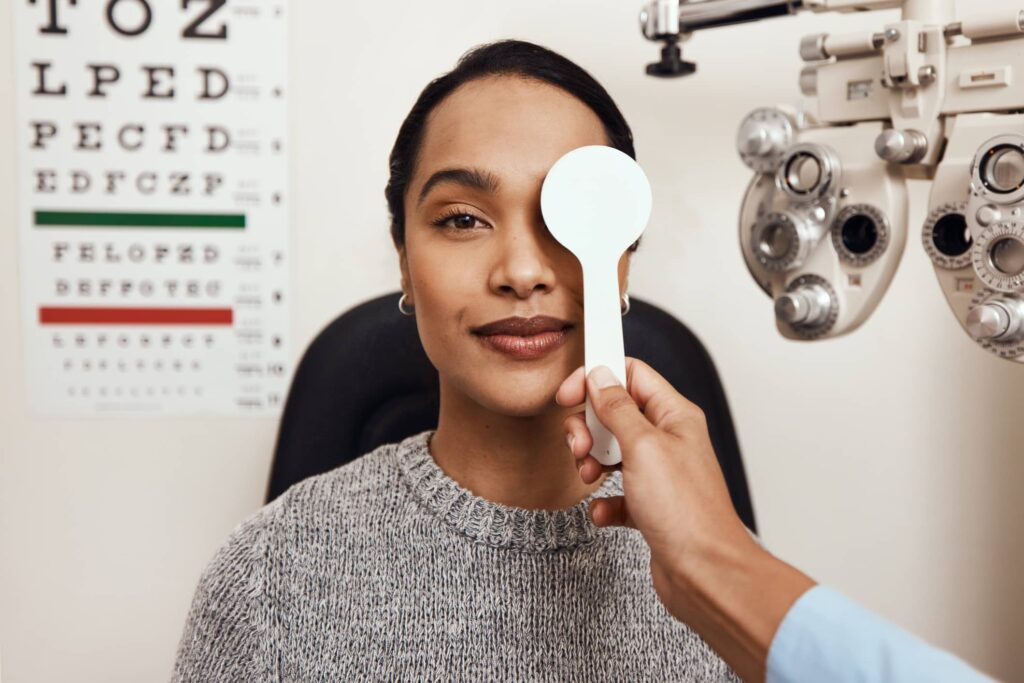All Categories
Featured
Table of Contents
Keeping optimal eye health is vital for a premium quality of life, and routine eye exams are a critical component of that upkeep. Vision changes can occur at any kind of age, making it crucial to customize eye treatment referrals to various life stages. Below's a guide on exactly how typically eye examinations must be set up for various age to make sure the very best possible eye health and wellness.
Throughout this visit, eye care experts evaluate visual acuity and check for any kind of developmental concerns. If no worries are noted, the next eye examination must happen prior to the youngster enters school, usually around ages five or 6.
Moms and dads need to remain watchful for signs of vision troubles, such as squinting, difficulty focusing on the blackboard, or suffering frustrations. It's critical to set up an exam instantly if any of these signs occur. Normal analyses guarantee that youngsters can perform well academically and participate fully in tasks like sporting activities.
![]()
During young adulthood, individuals usually experience fewer significant modifications in vision, but routine eye examinations continue to be vital. Youthful adults must have extensive eye tests every 2 years. Those with danger elements, such as a household history of eye disease, diabetic issues, or constant get in touch with lens use, might need yearly check-ups.
Young people are commonly based on electronic eye stress as a result of long term use of computer systems and mobile phones. Symptoms like dry skin, tiredness, and blurred vision might develop from extreme screen time. If these signs and symptoms continue, speaking with an eye treatment professional can bring about individualized remedies, such as computer system glasses or suggestions for way of living modifications.
For individuals with underlying health and wellness problems, such as high blood pressure or diabetes mellitus, more regular exams may be needed. Routine tracking is crucial for taking care of these conditions and ensuring that any kind of possible eye health and wellness concerns are resolved promptly.
Elders may likewise experience modifications in their ability to see in reduced light or distinctions in color understanding. Regular examinations allow eye treatment professionals to keep track of these adjustments and supply suitable interventions, making sure seniors preserve their self-reliance and quality of life.
Infants and Toddlers (0-2 Years)
Eye health and wellness begins at birth. The American Academy of Pediatric medicine recommends that infants have their initial detailed eye exam at around six months of age.Throughout this visit, eye care experts evaluate visual acuity and check for any kind of developmental concerns. If no worries are noted, the next eye examination must happen prior to the youngster enters school, usually around ages five or 6.
Day Care Center and School-Aged Kid (3-18 Years)
Kids ages three to 18 need to go through regular eye examinations every one to two years. Although schools commonly conduct fundamental vision testings, these do not replace comprehensive tests executed by eye treatment professionals. An extensive eye test examines not only aesthetic skill yet also eye coordination, tracking skills, and overall eye health.Moms and dads need to remain watchful for signs of vision troubles, such as squinting, difficulty focusing on the blackboard, or suffering frustrations. It's critical to set up an exam instantly if any of these signs occur. Normal analyses guarantee that youngsters can perform well academically and participate fully in tasks like sporting activities.
Young Person (19-39 Years)

During young adulthood, individuals usually experience fewer significant modifications in vision, but routine eye examinations continue to be vital. Youthful adults must have extensive eye tests every 2 years. Those with danger elements, such as a household history of eye disease, diabetic issues, or constant get in touch with lens use, might need yearly check-ups.
Young people are commonly based on electronic eye stress as a result of long term use of computer systems and mobile phones. Symptoms like dry skin, tiredness, and blurred vision might develop from extreme screen time. If these signs and symptoms continue, speaking with an eye treatment professional can bring about individualized remedies, such as computer system glasses or suggestions for way of living modifications.
Grownups (40-64 Years)
Going into midlife causes more visible changes in vision, especially the onset of presbyopia, which impacts the capacity to concentrate on close items. Adults aged 40 to 64 must have eye tests every one to 2 years. This age is likewise at a greater threat for establishing conditions such as glaucoma, cataracts, and age-related macular deterioration.For individuals with underlying health and wellness problems, such as high blood pressure or diabetes mellitus, more regular exams may be needed. Routine tracking is crucial for taking care of these conditions and ensuring that any kind of possible eye health and wellness concerns are resolved promptly.
Elders (65 Years and Older)
For elders, the demand for normal eye exams ends up being much more critical due to a boosted danger of age-related eye diseases. It is typically suggested that individuals aged 65 and older have an eye test a minimum of annually. Early detection of problems like cataracts, glaucoma, and macular deterioration is vital for avoiding vision loss.Elders may likewise experience modifications in their ability to see in reduced light or distinctions in color understanding. Regular examinations allow eye treatment professionals to keep track of these adjustments and supply suitable interventions, making sure seniors preserve their self-reliance and quality of life.
Final thought.
Understanding the proper schedule for eye examinations based on age is essential for maintaining eye health and making certain clear vision throughout life. By focusing on eye treatment and sticking to advised exam timetables, people can take positive actions to shield their vision and improve their general health.Latest Posts
Arcadium
Published Nov 23, 24
1 min read
Retina Care: Protecting Your Vision for the Future
Published Nov 23, 24
1 min read
Bare Bones Furniture & Mattress
Published Nov 23, 24
4 min read